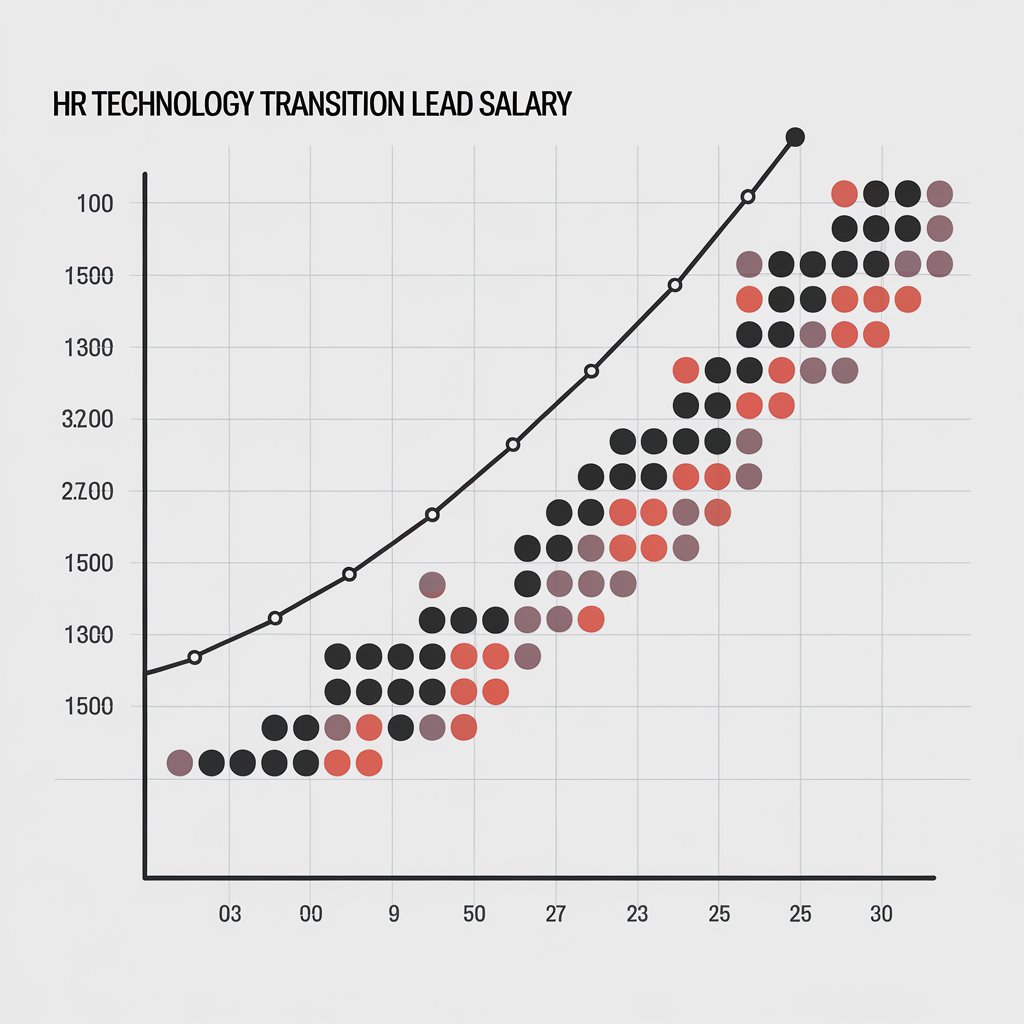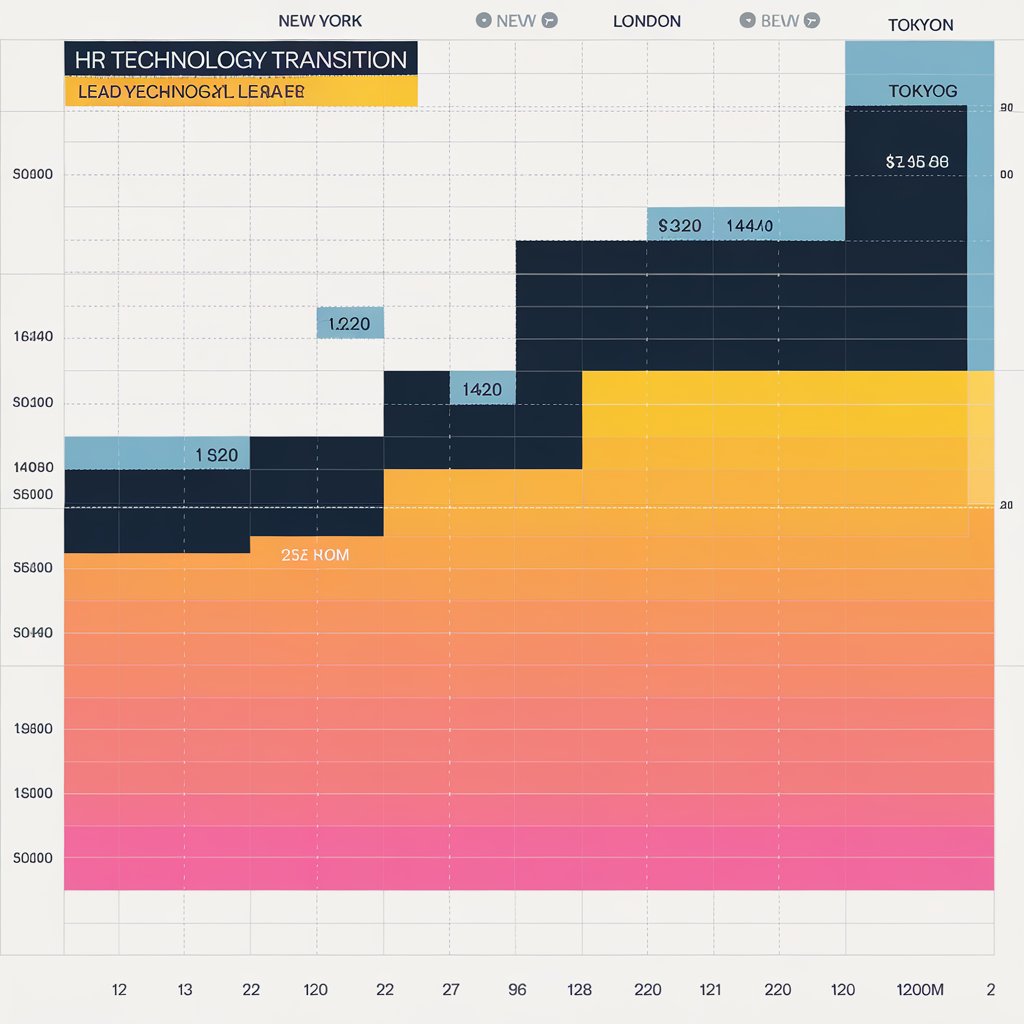The Comprehensive Guide to Understanding “HR Technology Transition Lead Salary Ge”
In today’s fast-paced business world, human resources (HR) departments are transforming rapidly to keep up with technological advancements. This transformation has created an exciting career path for professionals specializing in HR technology transition. A crucial aspect of this journey is understanding the “HR technology transition lead salary ge” and how it shapes the profession. In this article, we’ll explore everything you need to know about this topic, including salary trends, factors affecting pay, and tips for excelling in this field.

What Does an HR Technology Transition Lead Do?
An HR technology transition lead is responsible for overseeing the implementation and migration of HR systems, ensuring a seamless integration with organizational processes. They play a vital role in:
- Evaluating existing HR systems and identifying areas for improvement.
- Leading the transition to modern HR technologies, such as cloud-based platforms.
- Training HR staff on new systems and processes.
- Ensuring compliance with regulations and safeguarding employee data.
Their expertise significantly impacts organizational efficiency, making their role indispensable in modern workplaces.
What Is the “HR Technology Transition Lead Salary Ge”?
The term “HR technology transition lead salary ge” is a frequently searched query by professionals aiming to understand the earning potential in this niche. While salaries vary depending on factors like location, industry, and experience, the following breakdown provides a general idea:
- Entry-Level Positions: For those new to the field, salaries typically range between $70,000 and $90,000 annually.
- Mid-Level Professionals: With 3-5 years of experience, salaries increase to $95,000-$120,000 per year.
- Senior-Level Roles: Highly experienced professionals can earn upwards of $130,000, with some reaching $150,000 or more.
The keyword “HR technology transition lead salary ge” is often used to find regional differences, as location significantly affects earning potential.

Factors Affecting HR Technology Transition Lead Salaries
Several factors influence the salary of an HR technology transition lead. Let’s break down the key components:
1. Location
Salaries vary widely based on geographic location. Urban areas and regions with a high concentration of tech companies tend to offer higher salaries. For instance, cities like San Francisco and New York typically provide compensation at the top end of the spectrum for “HR technology transition lead salary ge.”
2. Industry
Industries with complex HR needs, such as finance, healthcare, and technology, often pay higher salaries to attract top talent. These industries value professionals who can streamline HR operations and align them with overall business goals.
3. Experience
Experience is a major determinant of salary. Professionals with a proven track record of successful HR system implementations command higher wages. Employers are willing to invest in seasoned experts who can lead transitions with minimal disruptions.
4. Certifications and Skills
Certifications like SHRM-CP, HRCI, or expertise in platforms like Workday, SAP SuccessFactors, and Oracle HCM Cloud can significantly boost earning potential. Additional skills such as project management and data analytics further enhance career prospects.
5. Company Size
The size of the company also plays a crucial role in determining salaries. Larger organizations with extensive HR operations tend to offer higher pay packages to attract top-tier talent capable of handling complex transitions.
Demand for HR Technology Transition Leads
The demand for HR technology transition leads is on the rise, fueled by digital transformation initiatives. Companies across industries are recognizing the need for skilled professionals to modernize their HR systems, ensuring competitiveness in a dynamic business environment.
A quick search for “HR technology transition lead salary ge” reveals thousands of job postings, reflecting a thriving job market. With organizations prioritizing employee experience and data-driven HR strategies, this trend is expected to continue. Furthermore, as remote work and hybrid models gain traction, the need for robust and adaptable HR systems has become more critical than ever.

Real-World Examples of HR Technology Transition Success Stories
To understand the importance of this role, let’s look at a few real-world examples:
- TechCorp’s Digital Overhaul: A multinational tech company recently transitioned from a legacy HR system to a cloud-based platform. The HR technology transition lead played a pivotal role in ensuring a smooth migration, training over 500 HR staff, and reducing operational costs by 20%.
- MediHealth’s Compliance Upgrade: A leading healthcare provider needed to update its HR systems to meet stringent regulatory requirements. The transition lead not only managed the technical aspects but also ensured that all processes complied with new laws, avoiding potential legal issues.
- RetailPro’s Employee Experience Transformation: A retail giant revamped its HR operations to enhance employee satisfaction. By implementing user-friendly HR technology, the transition lead improved employee engagement scores by 35%.
These examples highlight how an HR technology transition lead’s expertise can drive tangible benefits for organizations.
Tips for Boosting Your Career in HR Technology Transition
If you’re aiming to maximize your earning potential as an HR technology transition lead, consider these strategies:
- Expand Your Skill Set: Stay updated with the latest HR technologies and best practices. Attend workshops, webinars, and courses to refine your knowledge.
- Earn Relevant Certifications: Credentials like SHRM-SCP or expertise in popular HR platforms can set you apart. Certifications not only enhance your skills but also make you more attractive to potential employers.
- Build a Strong Network: Attend industry events, join HR technology forums, and connect with peers to stay informed about opportunities and trends. Networking can open doors to lucrative roles.
- Demonstrate Leadership: Highlight your ability to lead teams and drive successful system transitions in your resume and interviews. Showcase specific achievements that underline your impact.
- Focus on Continuous Learning: The field of HR technology is constantly evolving. Staying ahead of the curve by learning about emerging technologies, such as AI-driven HR tools, can give you a competitive edge.

The Future of HR Technology Transition Roles
The future of HR technology transition leads looks promising, with several trends shaping the industry:
- Artificial Intelligence (AI): AI is revolutionizing HR processes, from recruitment to performance management. Transition leads must understand how to integrate AI tools into existing systems.
- Data Analytics: Companies are increasingly relying on data to make HR decisions. Transition leads with expertise in analytics can offer valuable insights.
- Remote Work Solutions: As remote work becomes the norm, HR systems need to adapt. Transition leads will play a key role in implementing solutions that support remote and hybrid teams.
- Employee Well-being Platforms: Organizations are prioritizing employee well-being. Transition leads will be instrumental in integrating wellness tools into HR systems.
Conclusion
Understanding the “HR technology transition lead salary ge” is essential for professionals navigating this specialized career path. By considering factors like location, industry, and certifications, you can position yourself for success and command competitive compensation.
With demand for HR technology transition leads at an all-time high, now is the perfect time to invest in your career and capitalize on the opportunities in this dynamic field. Stay proactive, keep learning, and watch your career soar!
Whether you’re just starting or are a seasoned professional, the role of an HR technology transition lead offers a rewarding and impactful career. Dive into the world of HR technology today and embrace the endless possibilities it brings.
FAQ: HR Technology Transition Lead Salary Ge
1. What is an HR Technology Transition Lead?
An HR Technology Transition Lead is a professional responsible for overseeing the migration and implementation of HR systems. Their duties include evaluating existing systems, managing transitions to modern platforms, training HR teams, and ensuring compliance with industry standards.
2. Why is the HR Technology Transition Lead role important?
This role is critical because HR systems directly impact employee satisfaction, operational efficiency, and regulatory compliance. Transition leads ensure seamless upgrades to technology, reducing downtime and enhancing HR functionality.
3. What does the term “HR technology transition lead salary ge” mean?
This term refers to queries about the salaries of HR Technology Transition Leads, focusing on geographic differences, industry-specific trends, and experience levels influencing pay.
4. What is the average salary of an HR Technology Transition Lead?
The average salary varies based on experience and location:
- Entry-Level: $70,000 to $90,000 per year.
- Mid-Level: $95,000 to $120,000 annually.
- Senior-Level: $130,000 or more, often exceeding $150,000 in top markets.
5. What factors affect HR Technology Transition Lead salaries?
Several factors influence salaries, including:
- Location: Urban and tech-centric areas often pay higher.
- Industry: Sectors like finance, healthcare, and technology offer better pay.
- Experience: The more seasoned a professional, the higher their earning potential.
- Certifications: Credentials such as SHRM-CP or Workday certifications can increase salary.
6. Which industries hire HR Technology Transition Leads?
Industries with complex HR systems, such as:
- Technology
- Finance
- Healthcare
- Retail
- Manufacturing
These sectors prioritize efficient HR processes and often require skilled transition leads.
7. What skills are essential for an HR Technology Transition Lead?
Key skills include:
- Knowledge of HR systems like SAP SuccessFactors or Oracle HCM Cloud.
- Project management expertise.
- Strong leadership and communication abilities.
- Understanding of data analytics for HR insights.
8. What certifications are beneficial for this role?
Certifications that boost career prospects include:
- SHRM-CP or SHRM-SCP (Society for Human Resource Management).
- HRCI (Human Resource Certification Institute) credentials.
- Platform-specific certifications like Workday or SAP certifications.
9. Is there demand for HR Technology Transition Leads?
Yes, demand is high due to:
- Increased adoption of digital HR tools.
- The shift to remote and hybrid work environments.
- Rising importance of data-driven HR practices.
10. How does location impact the “HR technology transition lead salary ge”?
Location significantly affects salaries. For instance:
- High-paying cities: San Francisco, New York, Boston.
- Moderate-paying regions: Suburban areas or smaller cities.
Professionals in urban hubs typically earn more due to higher demand and cost of living.
11. What trends are shaping the future of HR technology transitions?
Emerging trends include:
- Adoption of AI in HR tools.
- Greater reliance on data analytics for decision-making.
- Implementation of platforms that support hybrid and remote work models.
- Integration of employee well-being solutions.
12. How can I increase my earning potential in this role?
To maximize your salary:
- Stay updated on HR technology trends.
- Earn relevant certifications.
- Gain experience in industries with high HR demands.
- Network within the HR tech community.
13. Are there opportunities for career growth?
Absolutely. HR Technology Transition Leads can advance to roles like:
- HR Technology Director
- Chief HR Officer (CHRO)
- HR Technology Consultant
These positions often come with significantly higher salaries and responsibilities.
14. What challenges do HR Technology Transition Leads face?
Common challenges include:
- Managing resistance to change among staff.
- Ensuring data security during transitions.
- Staying updated with rapidly evolving technologies.
- Balancing timelines and budgets during large-scale implementations.
15. How can I start a career as an HR Technology Transition Lead?
To begin your journey:
- Gain experience in HR or IT roles.
- Familiarize yourself with popular HR platforms.
- Pursue certifications relevant to HR technology.
- Seek mentorship or training in HR systems migration.
16. Why is “HR technology transition lead salary ge” a popular search?
This search term is popular because professionals are keen to understand the earning potential in this niche, often factoring in geographic differences and industry trends.
17. What role does data analytics play in HR technology transitions?
Data analytics helps transition leads:
- Identify areas needing improvement.
- Track the success of new systems.
- Provide actionable insights to optimize HR processes.
18. How long does a typical HR technology transition project take?
The duration varies but typically ranges from 3 to 12 months, depending on the project scope, company size, and complexity of the systems involved.
19. What is the future outlook for HR Technology Transition Leads?
The future is promising, with growing demand fueled by:
- Digital transformation initiatives.
- Evolving workforce needs.
- Increasing emphasis on employee experience.
20. What advice do experts have for aspiring HR Technology Transition Leads?
Experts suggest:
- Continuously learning and adapting to new technologies.
- Networking with professionals in HR and technology.
- Focusing on problem-solving and leadership skills.
By taking these steps, you can thrive in this dynamic and rewarding career path.

